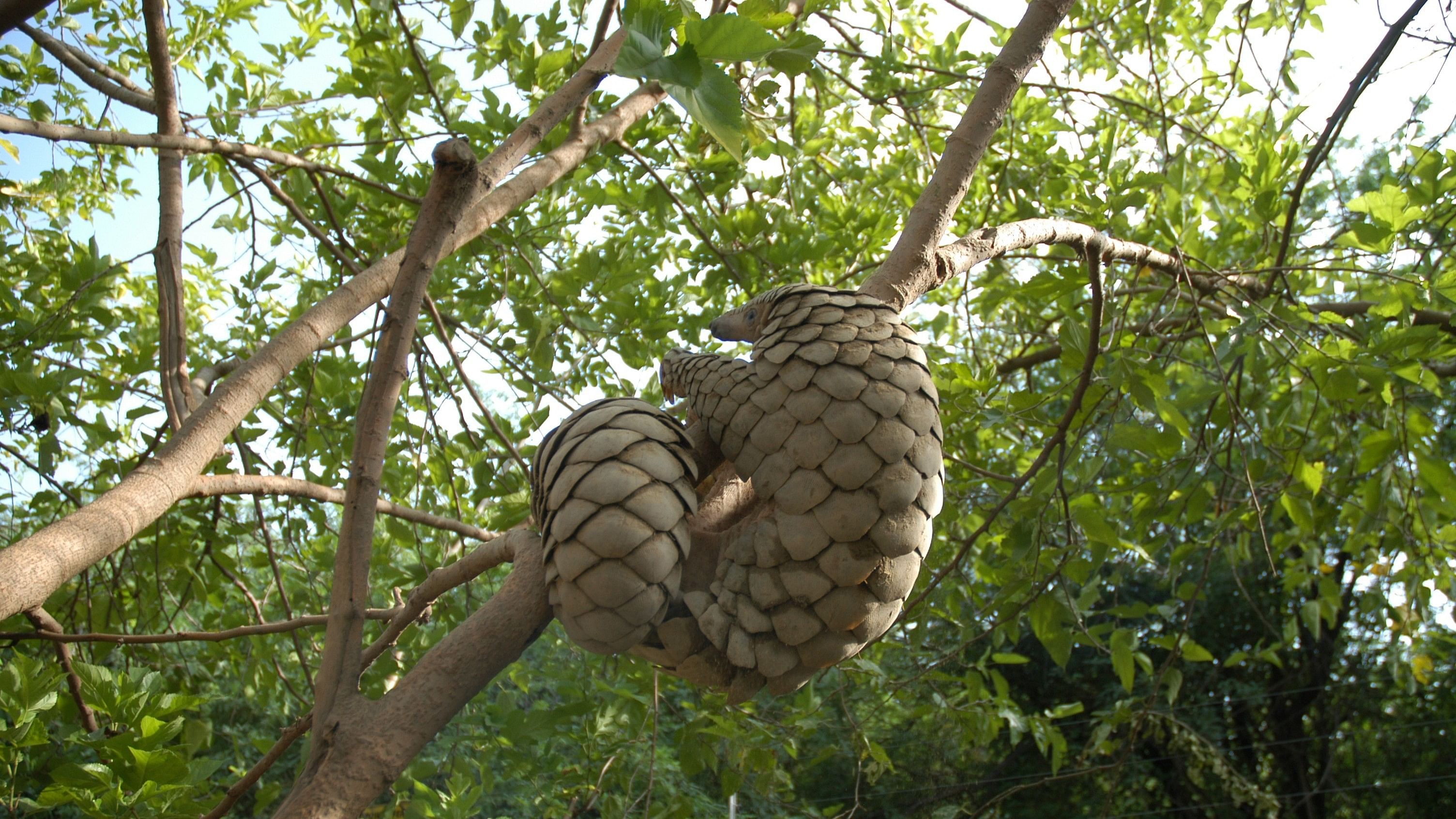
An Indian pangolin rescued by Wildlife SOS after release in its natural habitat.
Credit: Wildlife SOS
Nearly 6,000 pangolins were poached in India between 2009 and 2017, according to Wildlife SOS.
In India, two of the nine pangolin species are found - the Indian pangolin (endangered) and the Chinese pangolin (critically endangered).
Every year, World Pangolin Day is observed on February 17, serving as an opportunity to raise awareness about this lesser-known mammal, which is elusive, endangered, and in need of protection.
Getting somewhat up close, the pangolin is an insectivore, or myrmecophagous, which means it feeds on a specialised diet of ants and termites. Being nocturnal, it possesses a strong sense of smell, which helps it locate prey. This shy-natured mammal is identified by its scaly body, and the keratinous scales are an important structure for the animal as they shield pangolins from potential predators.
It is the pangolin’s scales that have pushed the two species into the vicious quagmire of wildlife trafficking. Besides pangolin scales, fetuses, bile, blood, bones, and claws are used in traditional Chinese medicines. These body parts are believed to possess healing powers and cure diseases.
Kartick Satyanarayan, Co-founder and CEO of Wildlife SOS, said, “Pangolins are widely hailed in the medical community. Practitioners claim to cure ailments like piles and jaundice with the help of pangolin parts. As a result of these misguided beliefs, their use in traditional Chinese medicines is still widely accepted.”
Geeta Seshamani, Co-founder and Secretary of Wildlife SOS, said, “Pangolin scales are often crafted into artefacts and ornaments such as finger rings, charms, and amulets. Moreover, people wrongly associate scales with self-defence against black magic and witchcraft. Pangolin skin is made into leather products, while bushmeat is consumed as a delicacy across Asian countries.”
Wasim Akram, Deputy Director of Special Projects at Wildlife SOS, said, “Wildlife SOS has played a crucial role in their conservation with our Rapid Response Unit having rescued pangolins from Agra and Karnataka. In one certain incident, our team saved a juvenile pangolin that was trapped in clutch wires and had sustained injuries. Moreover, we have also helped restore natural habitats through habitat conservation projects such as the one in Karnataka’s Ramdurga.”